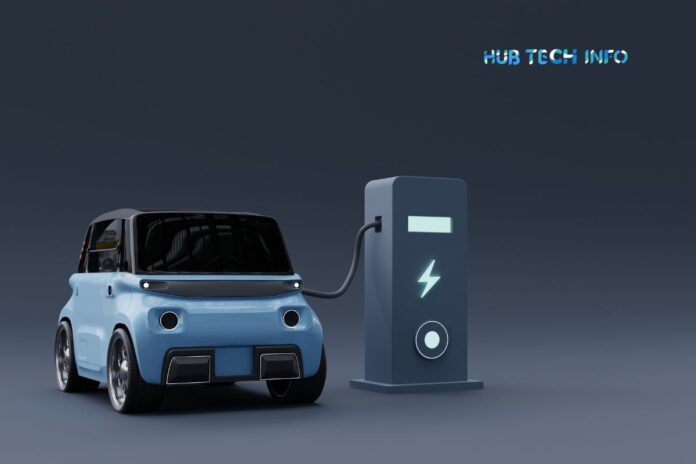In the world of eco-friendly transportation, people are talking a lot about hydrogen fuel cell cars versus electric cars. These cars are seen as ways to help the environment by cutting down on pollution and fighting climate change. But deciding which one is better isn’t easy. We need to look at what each can do well, where they fall short, and what challenges they face.
Electric Cars: Driving Toward a Greener Future
Electric cars, known as EVs, are leading the charge in the move towards cleaner transportation. They’re getting a lot of attention thanks to better battery technology, government support, and more people wanting eco-friendly options over traditional gas-powered cars.
The cool thing about electric cars is their simplicity and efficiency. Instead of needing a big, complicated engine like regular cars, EVs use rechargeable batteries to power an electric motor. This means they don’t produce any harmful emissions when they drive, making the air in cities cleaner and better for everyone. Plus, as more of our energy comes from renewable sources like the sun and wind, electric cars become even better for the environment.
Electric cars are also super efficient. They can go longer distances on a single charge compared to hydrogen cars, and they cost less to run. That’s great news for people who want to use them for everyday driving or getting around town.
And they’re not just good for the planet – electric cars offer a smooth ride with instant power and quiet operation. This makes driving them a real pleasure and adds to their appeal for drivers.
But there are some challenges too. One big worry for people is range anxiety – the fear of running out of battery power before reaching their destination. Even though batteries are getting better, it’s still something to think about, especially in areas with fewer charging stations. Another concern is the environmental impact of making and getting rid of lithium-ion batteries. Mining for the materials needed, like lithium and cobalt, can harm the environment and cause pollution. It’s something that the electric car industry needs to work on to make sure they’re as green as they claim to be.
Hydrogen Fuel Cell Vehicles: Unleashing the Power of Hydrogen
In contrast to electric cars, hydrogen fuel cell vehicles (FCVs) offer a different approach to zero-emission transportation. FCVs utilize hydrogen gas as a fuel source to generate electricity through a chemical reaction with oxygen in the fuel cell stack. This electricity powers the vehicle’s electric motor, emitting only water vapor as a byproduct—making hydrogen fuel cell vehicles one of the cleanest forms of transportation available.
Proponents of hydrogen fuel cell technology highlight several advantages over electric vehicles. One notable benefit is faster refueling times. Unlike electric cars, which require hours to recharge their batteries, hydrogen vehicles can be refueled in a matter of minutes, offering a level of convenience comparable to traditional gasoline-powered vehicles. This rapid refueling capability makes hydrogen fuel cell vehicles well-suited for long-distance travel and applications where downtime is a critical factor.

Moreover, hydrogen fuel cell vehicles boast extended driving ranges, further enhancing their appeal for consumers with diverse mobility needs. With refueling stations becoming more prevalent, particularly in regions like California and Japan, the infrastructure for hydrogen mobility is gradually expanding, paving the way for the widespread adoption of FCVs.
Additionally, hydrogen is abundant and can be produced from various renewable sources, including wind, solar, and biomass. This versatility holds the potential to decouple hydrogen production from fossil fuels, further reducing the carbon footprint of fuel cell vehicles and advancing the transition to a sustainable energy ecosystem.
However, the widespread adoption of hydrogen fuel cell vehicles faces significant hurdles. Chief among these challenges is the high cost of production and infrastructure development. Establishing a network of hydrogen refueling stations requires substantial investment, limiting the accessibility of FCVs to consumers and inhibiting market growth.
Furthermore, hydrogen production currently relies heavily on natural gas reforming, a process that generates carbon emissions unless coupled with carbon capture and storage technologies. While renewable hydrogen production methods hold promise for reducing emissions, scaling up these processes remains a formidable task requiring concerted efforts from industry and policymakers. Additionally, concerns regarding hydrogen storage and distribution persist, further complicating the widespread adoption of hydrogen fuel cell vehicles.
Integrating Hydrogen and Electric Mobility
In the debate between hydrogen vs electric cars, there is no clear winner. Instead, both technologies represent complementary pathways toward decarbonizing the transportation sector and mitigating climate change. The choice between hydrogen fuel cell vehicles and electric cars depends on various factors, including infrastructure availability, driving patterns, and regional energy resources.
For urban commuters with access to reliable charging infrastructure, electric vehicles may offer the most practical and cost-effective solution. The proliferation of EV models and the continuous expansion of charging networks make electric cars an attractive option for reducing emissions in densely populated areas and urban centers.
On the other hand, hydrogen fuel cell vehicles could prove advantageous for long-distance travel and heavy-duty applications where rapid refueling and extended range are paramount. Industries such as freight transportation, public transit, and long-haul logistics stand to benefit from the scalability and efficiency of hydrogen mobility solutions.
In the quest for sustainable mobility, collaboration and innovation are essential. Rather than viewing hydrogen and electric cars as competing technologies, stakeholders should work toward synergistic solutions that leverage the strengths of both approaches. This convergence could involve hybrid electric-hydrogen vehicles, flexible infrastructure that supports multiple energy carriers, and integrated energy systems that optimize resource utilization and reduce environmental impact.
Ultimately, the transition to a zero-emission transportation future requires collective action from industry, government, and society as a whole. By embracing technological diversity, fostering innovation, and prioritizing sustainability, we can pave the way for a cleaner, greener, and more resilient mobility ecosystem for generations to come.
Final Words
The argument between hydrogen vs electric cars shows how hard it is to figure out the best way to make transportation better for the environment. Both types of cars have good things about them, but also some problems that need fixing before they can be used everywhere.
As we try to make transportation cleaner, it’s important for people to work together, come up with new ideas, and think about energy and transportation in a big picture way. By using the good parts of hydrogen and electric cars and finding ways to fix the bad parts, we can make transportation better for the future.
Read Also:



